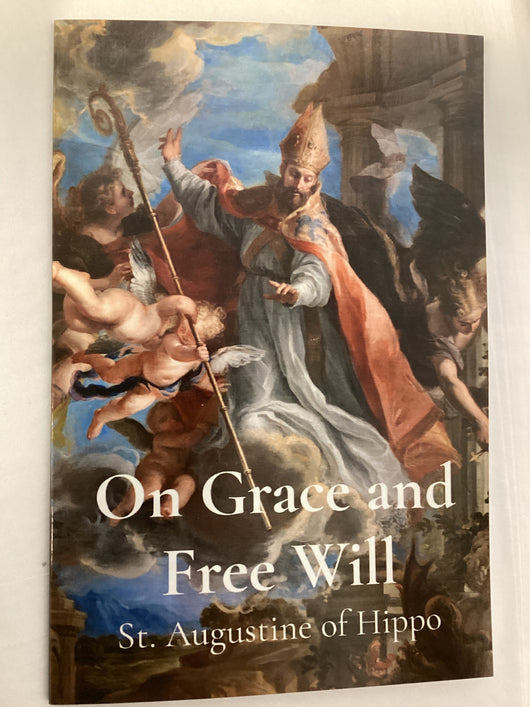
On Grace And Free Will - St. Augustine of Hippo
Regular price
$7.95
Sale
Augustine of Hippo (/ɒˈɡʌstɨn/;[1] Aurelius Augustinus Hipponensis;)[2] (November 13, 354 – August 28, 430), Bishop of Hippo Regius, also known as Augustine, St. Augustine, or St. Austin[3] was a Romanized Berber philosopher and theologian.Augustine, a Latin church father, is one of the most important figures in the development of Western Christianity. He "established anew the ancient faith" (conditor antiquae rursum fidei), according to his contemporary, Jerome.[4] In his early years he was heavily influenced by Manichaeism and afterwards by the Neo-Platonism of Plotinus,[5] but after his conversion and baptism (387), he developed his own approach to philosophy and theology accommodating a variety of methods and different perspectives.[6] He believed that the grace of Christ was indispensable to human freedom and framed the concepts of original sin and just war. When the Roman Empire in the West was starting to disintegrate, Augustine developed the concept of the Church as a spiritual City of God (in a book of the same name) distinct from the material Earthly City.[7] His thought profoundly influenced the medieval worldview. Augustine's City of God was closely identified with the church, and was the community which worshipped God.
